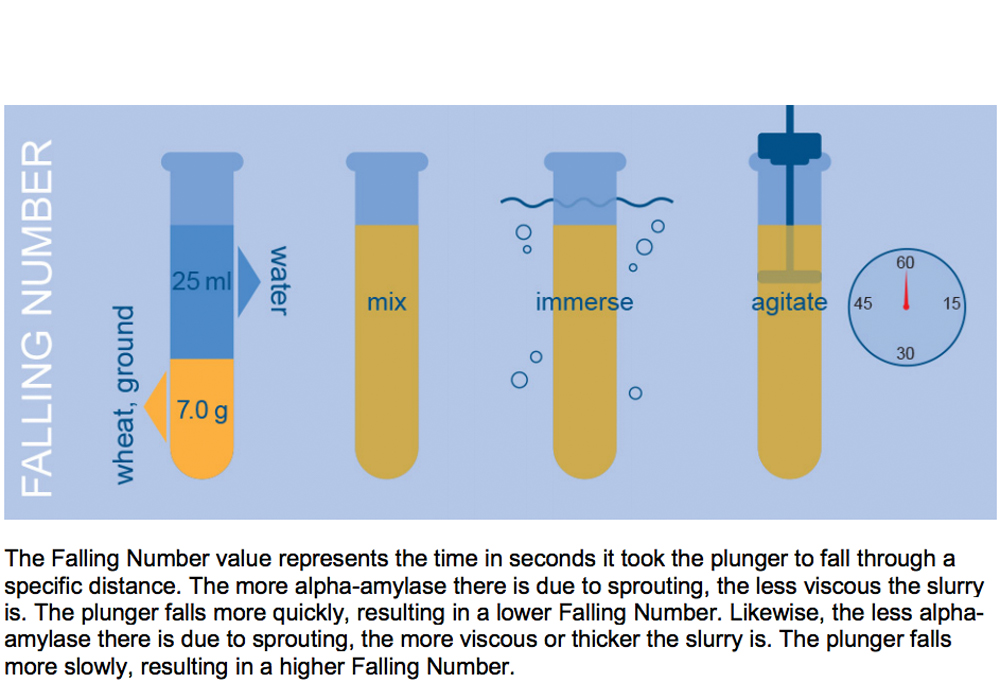The Canadian Grain Commission has completed its consultation on whether falling number and deoxynivalenol should be adopted as official grain grading factors in Canada.
And based on the feedback received during the 60-day consultation, the commission is suggesting that the two factors should not be included in Canada’s Official Grain Grading Guide.
Higher grain-handling costs and reduced grain-handling efficiencies were among the factors cited.
“While the accuracy of analytical tests such as those used to assess falling number and DON may be better than that of visual inspection for some quality factors, we clearly heard that other considerations, such as impacts on efficiency at delivery, impacts on the overall efficiency of the grain handling system and (concerns that) costs will be transferred to producers, need to be better understood before further steps are taken to add falling number and DON as official grading factors,” the commission said in a summary document.
Read Also

New coal mine proposal met with old concerns
A smaller version of the previously rejected Grassy Mountain coal mine project in Crowsnest Pass is back on the table, and the Livingstone Landowners Group continues to voice concerns about the environmental risks.
“Any broad-based changes must balance the desire to make the grain grading system more accurate and objective with the associated costs and implications for the sector.”
Falling number and DON are not now used as official grain grading factors in Canada, but grain companies can use them to determine the value of grain being purchased from farmers.
In the fall of 2019, many farmers voiced concerns that grain companies were testing commercial grain deliveries with extra vigilance.
Concerns over low falling number values were common during the harvest of 2019, prompting complaints from some farmers that grain companies should not be allowed to apply penalties for quality factors that aren’t recognized in the official grain grading system.
Last March, the grain commission launched a 60-day consultation seeking feedback and comments on whether falling number and DON should be adopted as official grain grading factors.
The commission received a total of 29 responses, including 13 from producer and commodity groups, seven from individual producers, five from industry stakeholders and four from industry associations.
CGC spokesperson Remi Gosselin said most comments fell into three broad categories:
- The reliability of falling number and DON tests and the ability of the tests and sampling procedures to produce accurate, precise and repeatable results.
- The costs of implementing falling number and DON tests, including concerns that grain handlers were likely to pass any additional costs back to producers.
- The potential impact on grain handling efficiency, specifically whether analytical testing would lengthen the time required for an official grading assessment to be conducted and whether the tests would cause significant delays at delivery points or elsewhere in the commercial grain-handling system.
A complete version of the grain commission’s summary document can be viewed online here.
“Based on the feedback received during the discussion period, the Canadian Grain Commission is not taking steps to add falling number and DON as official grain grading factors at this time,” Gosselin said.
“What we heard from most respondents is that the grading system needs to remain efficient and inexpensive and that adding these types of analytical tests would likely increase costs.”
Depending on the growing season, DON and falling number aren’t factors that need to be assessed every crop year, Gosselin said.
So assessing every grain delivery for those factors each year could introduce unnecessary costs to the sector.
“Falling number may be an occasional factor, but it does not occur every year and the concern that was voiced by many groups was that its assessment on an annual basis would be far too costly.”
Falling number and DON tests will continue to be conducted on grain samples submitted to the commission’s Harvest Sample Program, he added.
“There are no plans to cancel that.”
In addition, there may be an opportunity, at some point in the future, to include the tests in the commission’s Subject to Grain Inspector’s Grade and Dockage service, which it uses to resolve grain quality disputes between grain buyers and farmers.
“There were … several producer group submissions that highlighted the potential benefit of extending the Canadian Grain Commission’s Subject To Inspector’s Grade and Dockage arbitration to (include) falling number and DON results, while not necessarily being grading factors,” Gosselin said.
“That may be something that we could consider in the future, but there are no plans at this time.
“Perhaps a Canada Grain Act review would be a good process through which this could be raised as an issue.”


















